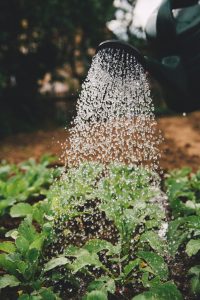The FEMISE Policy Brief series MED BRIEF aspires to provide Forward Thinking for the EuroMediterranean region. The briefs contain succinct, policy-oriented analysis of relevant EuroMed issues, presenting the views of FEMISE researchers and collaborators to policy-makers.
 The latest MED BRIEF on “Resilient Mediterranean Agriculture in the context of Water Scarcity under Climate Change” by Jacques Ganoulis, UNESCO Chair/International Network of Water-Environment Centres for the Balkans (INWEB), Aristotle University of Thessaloniki, Greece, is available here.
The latest MED BRIEF on “Resilient Mediterranean Agriculture in the context of Water Scarcity under Climate Change” by Jacques Ganoulis, UNESCO Chair/International Network of Water-Environment Centres for the Balkans (INWEB), Aristotle University of Thessaloniki, Greece, is available here.
Summary
 Water resources are essential for sustaining human life and preserving the ecosystem’s biodiversity. They also constitute the main “raw material” for economic activities like agriculture, tourism, energy production and industry. Particularly in the Mediterranean area, many different factors have greatly reduced the resilience of surface and groundwater resources, defining water resilience as the capacity of the hydrosphere to absorb and reduce external pressures. Some of these factors include the demographic increase in coastal zones, human concentration in urban areas, intensification of economic sectors like agriculture, tourism, transportation, oil and gas extraction and the effect of climate change. More recently, the shock of the COVID-19 pandemic has greatly impacted many economic activities in the Middle East and North Africa (MENA) region, including the South Med countries and created social problems by the disruption of the supply and demand chains.
Water resources are essential for sustaining human life and preserving the ecosystem’s biodiversity. They also constitute the main “raw material” for economic activities like agriculture, tourism, energy production and industry. Particularly in the Mediterranean area, many different factors have greatly reduced the resilience of surface and groundwater resources, defining water resilience as the capacity of the hydrosphere to absorb and reduce external pressures. Some of these factors include the demographic increase in coastal zones, human concentration in urban areas, intensification of economic sectors like agriculture, tourism, transportation, oil and gas extraction and the effect of climate change. More recently, the shock of the COVID-19 pandemic has greatly impacted many economic activities in the Middle East and North Africa (MENA) region, including the South Med countries and created social problems by the disruption of the supply and demand chains.
Agriculture is one of the main water consumers in the Mediterranean, abstracting in the MENA region countries on the average 86% of total water withdrawals [2]. Agricultural over-pumping has depleted many aquifers, groundwater is polluted from agricultural nitrates and pesticides and sea-intrusion in coastal areas and small islands has increased groundwater salinization.
This policy brief summarizes the current situation of Mediterranean agriculture based on available data in the literature and research programs at the UNESCO Chair/INWEB, Aristotle University of Thessaloniki, Greece [7]. After reviewing sustainable water management methodologies, practical recommendations are suggested to policymakers especially in the MENA countries for resilient agriculture in the context of water scarcity under climate change.
The view expressed in this Brief are the sole responsibility of the author and does not represent the view of FEMISE network.

